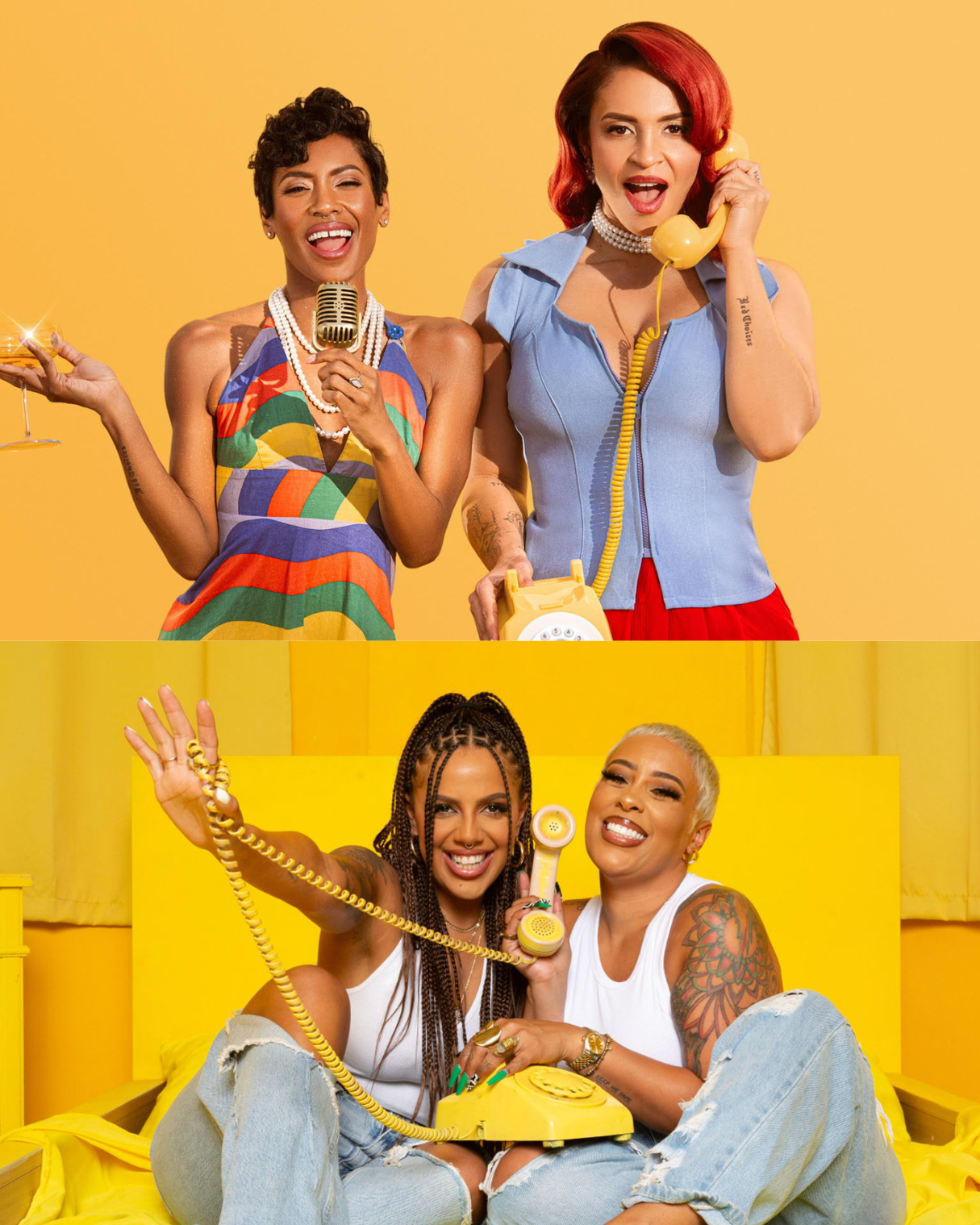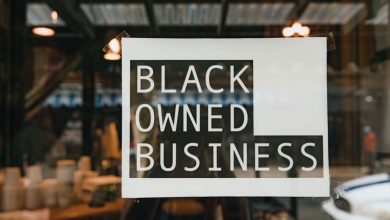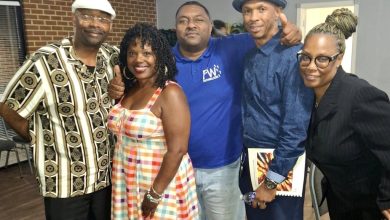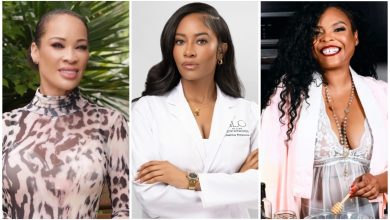Sex, Power, And Paychecks: How Black Women Are Turning Pleasure Into Profit – Essence

In a culture that has long policed Black women’s bodies and silenced their desires, a new wave of entrepreneurs is flipping the script. From podcasts to retreats, these women are building profitable platforms that center sexual liberation, relational healing, and financial independence—especially for those whose paths have been anything but traditional.
Turning Taboo Into Triumph
For Mandii B and Weezy WTF, authors and co-hosts of the podcasts Whorible Decisions and Decisions, Decisions, the journey to success began with an audacious idea: share unfiltered conversations about sex—particularly Black women’s experiences—in a space historically marked by silence and stigma.
“We knew there was a gap in the marketplace for people who were authentically living sex lives,” Weezy says. “Our stories were exciting and maybe even unheard with friends and companions that weren’t each other. We realized we had to fill that gap.”
Their brand didn’t just challenge social taboos; it turned them into business strategy. “Stigma over strategy is the testimony to all Black women,” Weezy explains. “We can’t just put out a podcast about sex like everyone else can—we’ve got to figure out how to make it 10 times better.” And that’s exactly what they did: cultivating a loyal audience, securing brand deals, and ultimately writing their first book, No Holes Barred: A Dual Manifesto of Sexual Exploration and Power (out June 2025, Atria Books).

From Healing to Hustle
Jamilah Mapp and Erica Dickerson, founders of the Good Moms Bad Choices podcast, share a similar story of turning vulnerability into community—and then into cash flow. Their podcast was born not from a marketing strategy but from a place of personal need.
“We were both going through breakups with our baby fathers,” Jamilah recalls. “We were like, ‘f-ck that stigma—let’s create a space where we can be real.’”
Their honesty resonated. Within months, they amassed thousands of listeners, sparking a movement of women eager to shed shame and embrace their full selves. “Our business is really guided by our audience’s experience of us,” Erica says. “We’ve grown with them, and they’ve grown with us.”
From podcasting, they expanded, to create merchandise, community experiences and a booming retreat brand. Most recently, the pair has organized couples trips and wellness journeys for supporters.
“It just made sense because our community goes beyond just listening to our episodes every week,” Mapp told ESSENCE. “They were willing to pay for an experience, and trust that we could deliver it.”
Therapy Meets Liberation
MoAndra Johnson, a licensed Marriage and Family Therapist and founder of Sex On The Table, brings a clinical lens to the conversation. As a pastor’s kid, she had to deconstruct generational and cultural shame around sexuality to find her own power. “When you are denied the tools to own your sexuality, you are often denied the tools to own your power in other areas of life too,” she explains.
Johnson’s work now centers on helping Black women—and queer folks—reclaim pleasure and agency. “Sexual empowerment and economic independence are deeply connected through one core truth: agency,” she says. “When you’re rooted in your power, you stop settling—whether it’s in relationships, at work, or in how you build wealth.”
The Business of Pleasure
These women’s ventures are not just cultural movements; they’re part of a booming industry. The global sexual wellness market was valued at approximately $57.5 billion in 2022 and is projected to reach around $110.33 billion by 2030, growing at a compound annual growth rate (CAGR) of 8.49%. This growth is fueled by increasing discussions around sex and related topics, as well as the destigmatization of sexual health discussions.
Digital sexual wellness is also on the rise, with the market expected to surpass $950 million in revenue by 2025, up from $323 million in 2020. This includes online platforms, educational content, and virtual consultations, reflecting a shift towards accessible and inclusive sexual health resources.
However, funding for comprehensive sex education remains limited. From 2015 to 2019, only 22% of the $195 million allocated to sex education-focused work was designated specifically for comprehensive sex education . This underscores the importance of alternative platforms that provide inclusive and affirming sexual health education.
Challenges and Censorship
Despite their successes, these entrepreneurs face significant challenges. Social media platforms often censor content related to sexual wellness, disproportionately affecting women-led and BIPOC-led brands. For instance, a study revealed that Google rejected 66% of ads by brands focusing on women’s reproductive and sexual health; TikTok rejected 48%; and Meta 84%.
This censorship limits their ability to reach audiences and secure funding.
“We’ve had to constantly prove the legitimacy of pleasure-based work,” says Johnson.
“Especially in mental health and academic spaces.” Mandii B echoes that sentiment. “There’s no empathy for people who choose to lean into sex work,” she says. “The misunderstanding is the dehumanizing—and the idea that women can’t ask for pleasure without a man’s permission.”
Redefining Success
For these women, success is not just about financial gain; it’s about creating spaces where others can find liberation. “We’re giving women permission to be fully themselves,” says Johnson. “Without shame. Without apology.”
Their work is a testament to the power of authenticity, resilience, and community. By turning taboo topics into transformative conversations, they’re not only building businesses but also challenging societal norms and empowering others to do the same.
As Mandii B puts it: “Everything we’ve created has given me my purpose. This is why I’m here. I’m here to help others—for women to see themselves. That gift isn’t just for a child I give birth to—it’s for every woman who needs to see herself reflected in power, pleasure, and possibility.”




